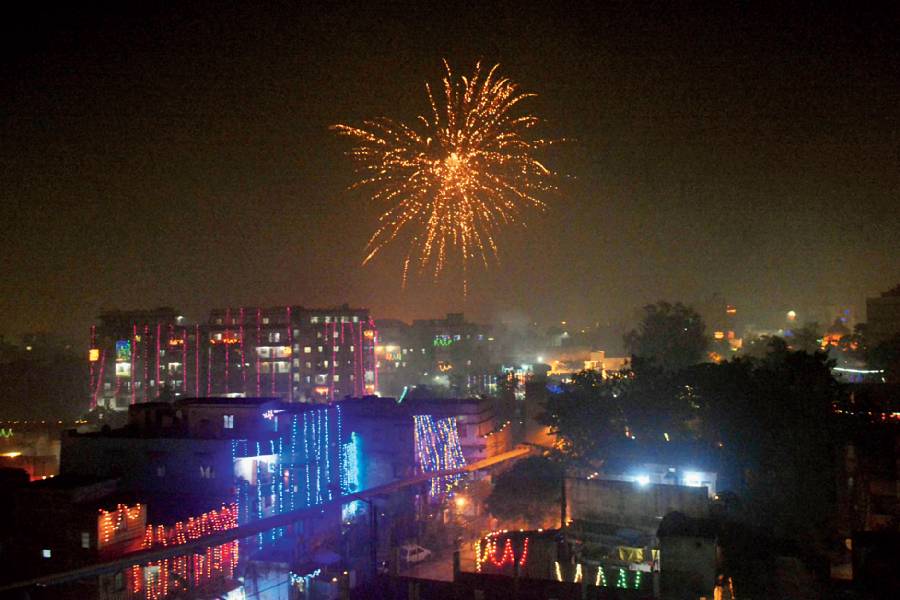The dust pollution in the Maidan tormented many who went to the Eden Gardens on Sunday.
The fireworks after the game made things worse, especially for visitors with respiratory ailments.
By the time the presentation ceremony was over, several elderly visitors to the ground felt “choked”.
The National Air Quality Index showed that the automatic air quality monitoring stations in Fort William and the Victoria Memorial, which are closest to the Eden Gardens, recorded “moderate” readings on Sunday.
The air quality index (AQI) recorded at Fort William was 194 on Sunday. The Victoria Memorial recorded an AQI of 164.
On Saturday, the AQI at Fort William was 113, according to the monitoring stations. It was 100 at the Victoria Memorial.
According to the Central Pollution Control Board, moderate air can cause “breathing discomfort to the people with lung, heart disease, children and older adults”.
A resident of Dhakuria, who works in the aviation sector, had taken her 61-year-old mother to the stadium. They had tickets for L Block.
“I got down on Red Road and had to walk around a long way to the stadium. My mother has respiratory problems and she was wearing a mask. But despite that, the dust pollution made the walk very difficult for her,” said the woman, who requested not to be named.
The dust was swelling up as the footfall increased, particularly in the barren parts with minimal grass, said environment experts.
The horses of the mounted police also aggravated the problem.
A majority of the 67,000 people came to the ground via the Maidan. Such a huge gathering inevitably leads to a surge in dust pollution.
This used to be one of the troubling images of the Book Fair on the Maidan before it was shifted by the high court.
Sprinkling water on the dust-laden regions helps in tackling the hazard, said an environmental expert.
“Sprinkling water on the dust-laden regions helps in tackling the hazard. It should be a must before big matches, when so many people come to the ground through the Maidan. Dry dust remains more suspended in the air than wet dust,” said Abhijit Chatterjee, an associate professor in the environmental science section at Bose Institute.
Multiple visitors said the firecrackers after the match increased air pollution and they felt “choked” at the time of returning home.
“It felt like the Diwali air — heavy and choking,” said one of them.
Every Diwali, the bursting of firecrackers increases air pollution exponentially.
Chatterjee, the researcher, said usually, celebratory fireworks such as the ones at the Eden Gardens are not known to cause large-scale respiratory problems.
“The crackers burst at the Eden Gardens rose much higher than the usual stuff burst during Diwali. The higher a cracker goes up, the higher the scope of dispersion in the air. But at a lower altitude, in a narrow space, it stays accumulated closer to the ground. That causes respiratory ailments,” said Chatterjee.
